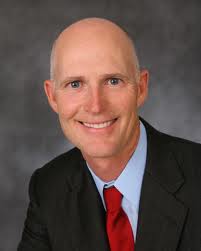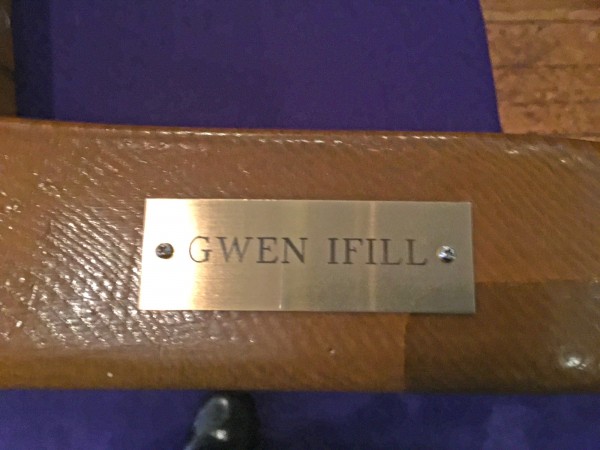 |
Voting rights advocates in Florida are anxiously awaiting a ruling from the U.S. District Court in Tallahassee on a legal challenge by the Department of Justice to the state's attempts to purge its voting roles.
Another lawsuit, filed last week by The Advancement Project in partnership with other litigants, is one of several that contends efforts by Florida Secretary of State Ken Detzner to remove registered voters from the state's rolls violates federal law.
"Florida targeted our plaintiffs only because they are naturalized citizens who got a driver's license or state ID when they were lawful immigrants, and they became naturalized citizens later in time," said Katherine Culliton-Gonzalez, director of the Advancement Project's Voter Protection Program. "Federal voting laws provide clear protections against this type of harassment of perfectly eligible voters."
The plaintiffs in the lawsuit include an individual Haitian-American and a Haitian-American civic organization. Supporters are hopeful the court will issue a restraining order against Florida's purge at a hearing today.
"Our complaint in federal court in Miami demonstrates that Florida's purge impacts black, Latino and Asian citizens at a glaringly disproportionate rate," added Culliton-Gonzalez. "This purge violates Section 2 of the Voting Rights Act of 1965, for which people marched and risked their lives to protect our fundamental voting rights—and it applies equally to all U.S. citizens."
For the Haitian community, news of the purge initiative has had a chilling effect on civic participation.
Estimates put the number of Haitian Americans in Florida at roughly 500,000, though on the state's motor vehicle list they and others from the Caribbean basin are categorized as black alongside African Americans.
Haitian Americans "tend to vote Democratic along with the majority of voters from the African diaspora," noted one observer, who speculated one reason may have to do with the fact that Temporary Protected Status has been granted to immigrant members of their community under Democratic presidents. "Collectively, the Caribbean community, like Hispanics, is becoming a powerful voting bloc."
In May, Detzner urged Florida's county election officials to use the Florida Department of Highway Safety and Motor Vehicles records to determine whether any non-citizens are on their voting rolls. Those officials mailed letters advising recipients they had 30 days to respond with proof of citizenship. Should recipients not respond, their names are to be placed in a newspaper for another 30-day notification period. Failure to reply -- even if one is a citizen -- is cause for removal from registered voter rolls.
The issue has taken on a partisan edge in a state with a Republican governor and state legislature, where controversy over ballots and race have cast doubts on the legitimacy and accuracy of voting counts in previous national elections.
At 29, Florida holds the largest bloc of electoral votes among the ten swing-states deemed key to November's elections.
The purge initiative "will be a major disaster for the Haitian-American community and for individuals from other groups with a hyphenated first name or last name," said Jean-Robert Lafortune, chair of the Haitian-American Grassroots Coalition, which is affiliated with VEYEYO, one of the plaintiffs in the case.
"For instance, my name, which is Jean-Robert, could easily fall under the no match - no vote compliance," he added.
The Advancement Project lawsuit follows several others, including one filed against Detzner by the U.S. Department of Justice for violating the provisions of the National Voter Registration Act. The law prohibits election officials from conducting wholesale purge initiatives 90 days before a federal election.
In its defense, the state contends it started the process long before the upcoming August 14 primary, asserting that its requests for citizenship lists from the Department of Homeland Security, which were denied, left it no choice but to proceed with the records from its motor vehicle voter registrations.
Part of the charges brought against Detzner involve the more than 2,600 names culled from motor vehicle records, all naturalized Americans. "Any state program or activity designed to ensure the maintenance of accurate and current voter registration rolls 'shall be uniform, nondiscriminatory and in compliance with the Voting Rights Act of 1965,'" the suit stated.
Some 82 percent of those on the state's purge list were "people of color," it added, and therefore the statistical impact on the Asian, black, and Hispanic community is also in violation of Section 2 of the VRA, which protects minority voters.
"The state position is, minority groups' participation in the Florida electoral system does not matter," insisted Lafortune. "I guess Florida voters will pay the price at the polls if the current secretary's strategy and tactics to purge the eligible voter lists remains unchallenged."
Part of that price, says Carolyn Thompson, Voter Protection Advocate for the Advancement Project, is questioning whether one's citizenship is valid. As immigrants, she explained, many come from countries where governments conduct repressive measures against perceived political opponents.
"Sometimes people are reluctant to come forward, though more are starting to do so," she said. "But sometimes, because of their unfamiliarity with the language, they may not fully understand the letter they have received."
More importantly, anyone who has received a letter likely will be subject to challenge when arriving at the polls.
Though someone who is challenged may vote provisionally, Thompson said those ballots are held to a higher level of scrutiny and typically result in minor voter errors that can disqualify them.
"Fifty-one percent of the provisional ballots were thrown out in 2008," Thompson said. "Voting with a provisional ballot is like second-class citizenship and Florida is imposing a two-tiered system of voting, one for citizens who were born here and one for naturalized Americans – immigrants -- who were not."
"Our goal," said Culliton-Gonzalez of the lawsuit, "is to end voting purges permanently, not just 90 days before an election."






















































































































































































































































































































